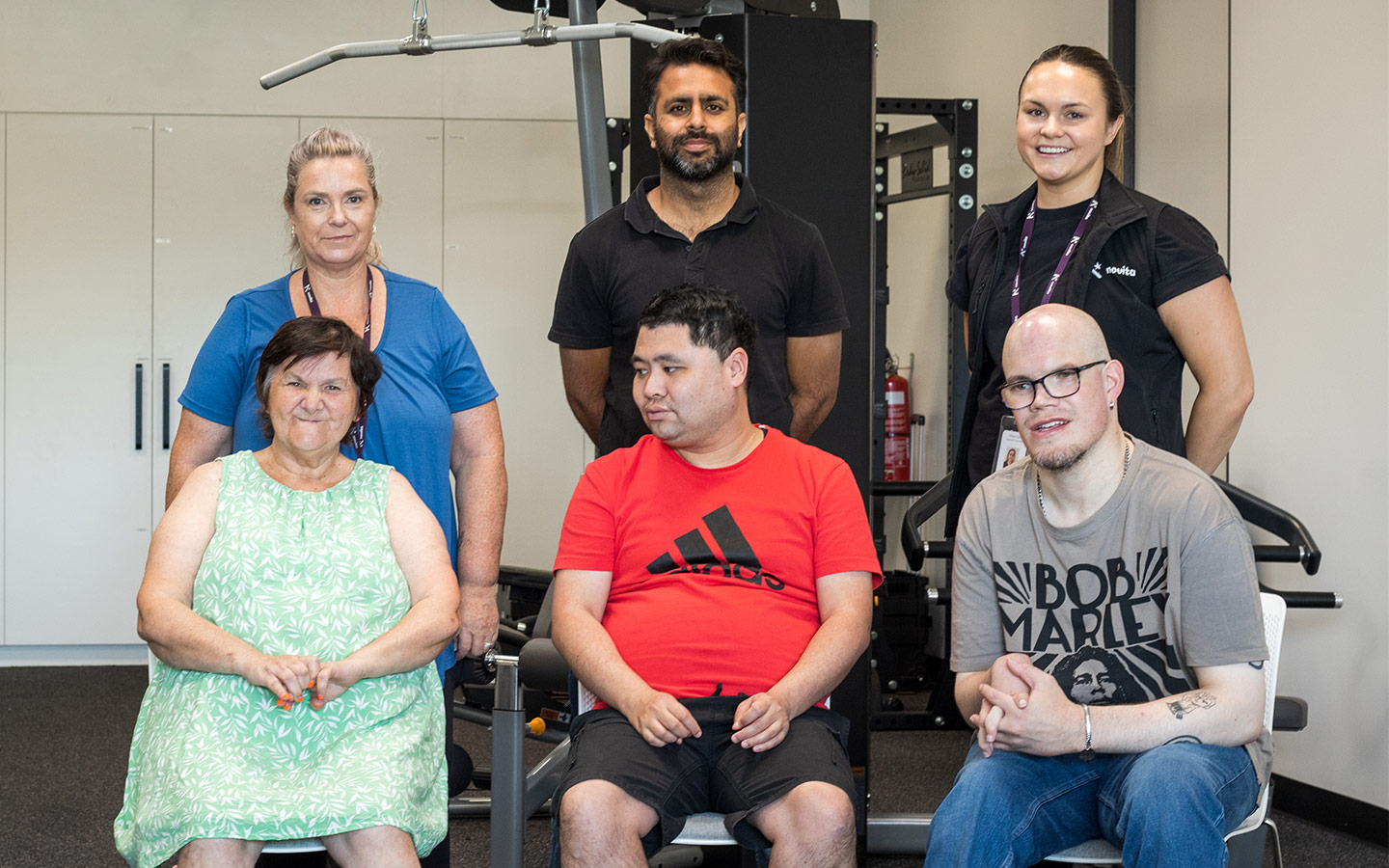Helpful Information
Three ways to manage your NDIS funding
access_time15min read

Three ways to manage your NDIS funding
The National Disability Insurance Scheme or ‘NDIS’ is a funding scheme operated by the Australian Government designed to support the needs and goals of people living with disability. A NDIS plan outlines a person’s needs and goals, while also highlighting the services and support they need to achieve these. A NDIS plan will also outline funding requirements and how to use your funding to achieve what you need.
A NDIS plan will usually include information about:
- You and your living situation,
- your goals, or things you want to work towards,
- who supports you (e.g., family, friends, community or government services),
- any NDIS supports that are funded,
- how you can use your NDIS funding,
- who will manage your funding,
- and any changes required to your plan.
Information sourced from the NDIS
Did you know there are three options to manage your NDIS funding?
These include:
- Self-managed
- Plan-managed
- NDIA-managed
When you first apply for NDIS funding, you can request how you would like your funding to be managed. You can choose one of these options, or a combination of each – it really depends on what you need from your plan. No matter the option you choose, you are in charge of how and where your funding is used.
Before we step through these options, it is important that you’re aware of your rights and responsibilities when holding a NDIS plan. According to information published by the NDIS, your responsibilities include:
- making sure the support you receive is directly related to your disability and algin with your plan,
- ensuring that your support is not already covered or delivered through another service system or organisation (these could include Medicare or private health insurance).
While your rights include:
- choosing who delivers your support (you do not just have to use one provider) and deciding who is the right provider for you,
- not feeling pressured to go with a particular provider or buying services that you don’t really want or need,
- receiving and paying for support at a reasonable and affordable price,
- and having the choice to decide what personal information you share with your provider(s).
NDIS plan options
Now that you are aware of your rights and responsibilities of having NDIS funding, here are the three ways to manage your plan.
1. Self-management
Self-management is when you manage your NDIS funding independently. It means you are in control of your own funds and how you want to use them to meet your needs. You can manage all or part of your NDIS funding if you choose.
Benefits of self-managing:
there are quite a few benefits to self-managing your NDIS plan if you are prepared to take the time and effort required to find support that suits you.
- Having a choice – you can decide on the support that best suits you and how they are delivered as part of your plan
- More flexibility – you have the choice to use both registered and unregistered NDIS providers that will best meet your needs and goals
- Holding the power – you have the power to negotiate costs either below or above NDIS pricing arrangements and price limits – this ensures you have the choice to offer you the best value
- Putting people first – you have the choice of the people you employ or contact for support
- Having full control – you have the choice on how and where your funding is spent – this means keeping a budget and keeping records and receipts
- Taking the opportunity to be innovative – you have more choice and freedom to decide which support suits your need
Difficulties of self-managing
Although there are many benefits to self-managing your NDIS plan, there can be some difficulties you should keep in mind.
- It can be time-consuming – finding the right option to suit your needs can be overwhelming, especially when there are so many offered on the market.
- It requires a lot of focus – if you’re someone who struggles with keeping time commitments or a spending log, self-managing may be challenging as you need to keep many records and receipts of your financial transactions and purchases.
Tips to self-managing your NDIS plan include:
- Being organised – ensure that you keep your records and receipts and take the time to find a support and service that suits you – but also has good value
- Taking the time to learn – you will benefit immensely if you take the time to learn about types of support and how they will work best for you
- Understanding your plan – ensure that you know the ins and outs of your plan so you can spend your funding the way you need and want
2. Plan-management
Plan-management occurs when a provider supports you to manage funding for your NDIS plan. These providers are known as plan managers. When you choose this option, your plan manager will handle the financial side of your plan, but you still have a lot of freedom in the services and support you receive.
Role of your plan manager
Your plan manager role is to handle the financial side of your plan. They will:
- Pay all of your bills to your service provider
- Help you keep track of your spending
- Reimburse any money you are owed
Benefits of plan-management
If you decide to go with a plan-managed NDIS plan, you still have a lot of freedom about the services you receive with some extra support from your plan manager.
- Having a choice – you can decide on the support that best suits you and how they are delivered as part of your plan
- More flexibility – you have the choice to use both registered and unregistered NDIS providers that will best meet your needs and goals
- Handing over the admin – when you have a plan manager, they will handle the financial administration of your plan, keeping any records or receipts as required
Difficulties of plan-management
There can also be some obstacles when it comes to plan-management, so it’s important you consider these before committing.
Finding the right plan manager – it’s important to find the right plan manager, including one who is reliable and responsive to messages and enquiries. This helps to ensure you receive the right support, when you need it.
3. NDIA Managed Plans
NDIA managed plans are referred to as ‘agency managed plans’ which means your plan is managed by the NDIA. Under this plan, the NDIA will provide you with a list of providers and help you track your spending.
Benefits of a NDIA managed plan
- If you choose a NDIA managed plan, you will receive a lot of support when it comes to choosing a provider and managing your finances.
- Handing over the admin – Under a NDIA managed plan, the financial administration of your plan, any records or receipts and other charges will be managed by the NDIA
It can make budgeting easier – By having your plan managed by the NDIA, you will have a clear idea of your budgeting goals, where you need to save and what you can spend.
Difficulties of a NDIA managed plan
- When you choose a NDIA managed plan, you can have less choice and control over the services and support you receive.
- Less choice – choice of services providers is limited to NDIS registered service providers
- Time consuming – if you want to change service providers, you may experience some delays
- Price capping – NDIS price caps may apply to your plan when registered service providers charge full price
No matter your choice, it is important you find a NDIS plan that suits your needs. This can take quite a while, but we are here to help. If you are starting your NDIS journey and want to find out more, call us on 1300 668 482 or email [email protected]


